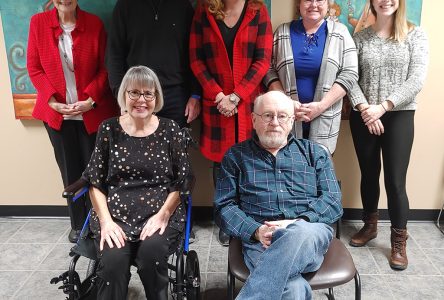CORNWALL, Ontario – The war mask Micael Duguay wore for months as a combat veteran in Afghanistan is still visible – but he’s doing his best to keep it under wraps.
Duguay is one of the nameless, often faceless veterans of war who return to society forever changed by the trauma and pressure of living within a zone of comfort that only extends to the tip of one’s rifle.
And he has struggled with that reintegration.
Fits of heavy drinking, suicidal thoughts, police charges and a feeling of abandonment by his fellow troops and the government that sent him to war have dominated the Long Sault resident’s return to Canada.
“I can’t even remember who I was before my first tour, it’s as if I was brain washed,” he said. “I can tell you one thing for certain: I (felt) completely insane with no comprehension of how normal people act in our modern society.”
Even something as simple as waiting in line at the bank became troubling. His reaction to stress in Afghanistan was to lash out to survive.
But that didn’t play well at the bank.
Duguay is speaking out about his experiences for a few reasons, but most specifically to educate the public about what it is like for veterans to return from combat – and about how they can appear marginalized because they lack the tools to make the monumental transition into “normal” life.
“My life spiraled out of control and no one was there to help me,” he said. “It started with a DUI with serious binge drinking and constant bar fights.”
What followed was a conviction and a 30-day jail sentence.
The Globe and Mail reported in August that the federal government has been trying to support soldiers exhibiting mental-health issues, but some returning soldiers like Duguay have expressed fears that they will be medically discharged from the military if they seek help for their problems.
Indeed Duguay was released from his duties as a reservist, after 17 years of service that had culminated in a sergeant’s rank and a ton of responsibility in the field.
“I went on two tours in Afghanistan, I was on pre-deployment for a third tour when I started feeling very depressed, having crippling anxiety and having around the clock thoughts of suicide,” he explained, adding he was told he would receive help via psychiatric treatment at an Ottawa facility tailor-made for combat veterans. “The help never came but what I can tell you is my life spiraled out of control and no one was there to help me.”
Duguay said despite claims that the Canadian Forces have implemented policies to help soldiers suffering from Post-Traumatic Stress Disorder (PTSD), there are veterans like him who slip through the cracks.
A survey of thousands of returning Afghanistan veterans this summer suggested the rate of PTSD among members of the Canadian Forces has nearly doubled since 2002.
Duguay is not surprised.
“When people don’t fit into the society that they are meant to live in or are rejected by a group they do two things,” he said. “One, they turn to radical ideas and use radical actions to get noticed. Two, they take their own lives.
“We have a chance to help veterans and put them into productive jobs but instead we choose to label them and turn our back.”
Duguay said he has wrestled with his demons for years and in some respects has won his personal war. The suicidal thoughts have been shelved, and he no longer struggles with something as simple as waiting in line at the bank.
The challenge now is rebuilding his life, at 40, after such a monumental shift.
“I sent at least 80 resumes in the area of Cornwall for various position and no one is willing to hire me,” he said. “Everyone that interviews me always says the same thing: ‘It’s not my war’ or ‘Thank you for your work overseas but we can’t hire you here.’
“(I’m) currently unemployed because society has labelled me as a criminal, (and) after all I am an ex-con.”


